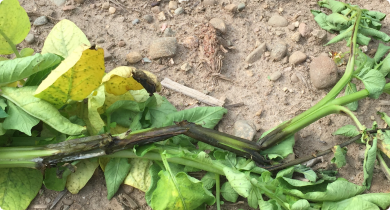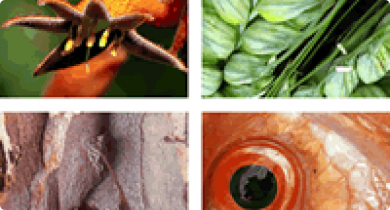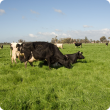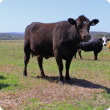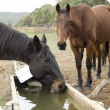Diseases
Diseases have a detrimental effect on plants and animals and impact on market access and agricultural production. Diseases include micro-organisms, disease agents (bacteria, fungi and viruses), infectious agents, parasites and genetic disorders.
Western Australia is free from some of the world's major agricultural and livestock diseases. Biosecurity measures on your property are vital in preventing the spread of diseases.
The Department of Primary Industries and Regional Development provides:
- biosecurity/quarantine measures at the WA border to prevent the entry of plant and animal diseases
- post border biosecurity measures for harmful animal and plant diseases
- advice on widespread diseases present in the state.
For advice on animal and plant diseases search our website, the Western Australian Organism List or contact our Pest and Disease Information Service (PaDIS).
For diagnostic services, please contact our Diagnostic Laboratory Services.
Filter by search
Filter by topic
- (-) Remove Livestock health & diseases filter Livestock health & diseases
- (-) Remove Livestock disease surveillance filter Livestock disease surveillance
- (-) Remove Livestock & animals filter Livestock & animals
- Biosecurity & quarantine (85) Apply Biosecurity & quarantine filter
- Biosecurity (85) Apply Biosecurity filter
- Livestock biosecurity (82) Apply Livestock biosecurity filter
- Livestock species (77) Apply Livestock species filter
- Livestock management (34) Apply Livestock management filter
- Sheep (33) Apply Sheep filter
- Beef cattle (27) Apply Beef cattle filter
- Emergency animal disease preparedness (26) Apply Emergency animal disease preparedness filter
- Dairy cattle (21) Apply Dairy cattle filter
- Poultry & birds (12) Apply Poultry & birds filter
- Management & reproduction (12) Apply Management & reproduction filter
- Pigs (11) Apply Pigs filter
- Feeding & nutrition (10) Apply Feeding & nutrition filter
- Goats (9) Apply Goats filter
- Horses (8) Apply Horses filter
- Livestock movement & identification (7) Apply Livestock movement & identification filter
- Wildlife biosecurity (4) Apply Wildlife biosecurity filter
- Chemicals (3) Apply Chemicals filter
- Stockfeed (3) Apply Stockfeed filter
- Control methods (3) Apply Control methods filter
- Food, export & investment (2) Apply Food, export & investment filter
- Veterinary chemicals (2) Apply Veterinary chemicals filter
- Emergency response (2) Apply Emergency response filter
- Quarantine (1) Apply Quarantine filter
- Preventing residues (1) Apply Preventing residues filter
- Residues in livestock (1) Apply Residues in livestock filter
- Water management (1) Apply Water management filter
- Water (1) Apply Water filter
- Livestock research & development (1) Apply Livestock research & development filter
- Export services (1) Apply Export services filter
- Biosecurity governance (1) Apply Biosecurity governance filter
- Biosecurity and Agriculture Management Act (1) Apply Biosecurity and Agriculture Management Act filter
- Climate, land & water (1) Apply Climate, land & water filter
- Importing animals (1) Apply Importing animals filter
- Importing to Western Australia (1) Apply Importing to Western Australia filter
- Livestock parasites (1) Apply Livestock parasites filter

